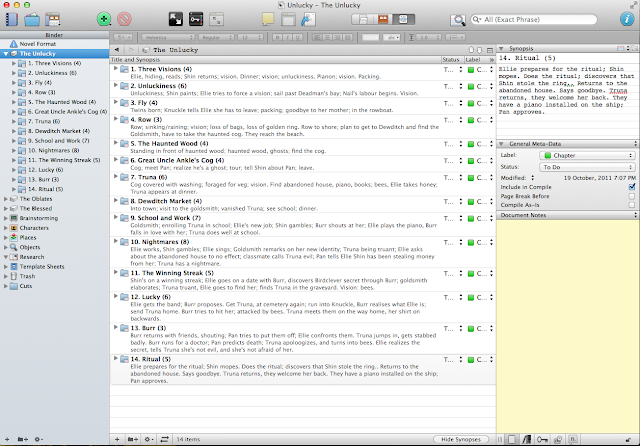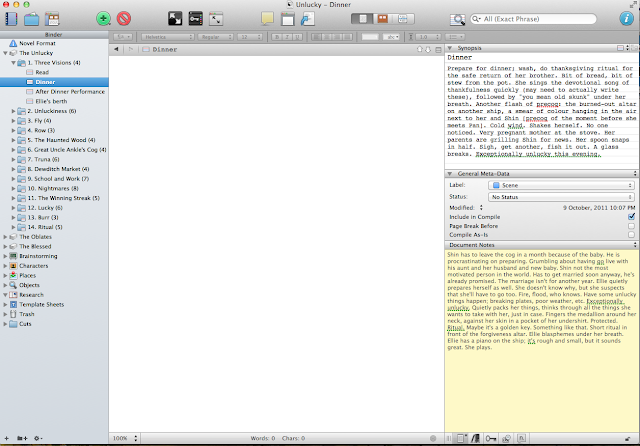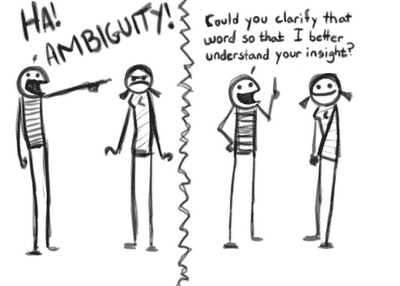The world believes that technology is special. Not all technology: not refrigerators, not hammers and nails, not paper and pencils. That stuff doesn’t need a users guide. Computers, though, do. Anything to do with computers, digital materials, online tools, that’s “technology”, and it’s different from everything else. Sometimes a lesser cousin (ebooks), and other times the superior advance (email). But different. It’s treated differently, it has new rules. In the world of libraries, that means that while books go in the catalogue, ebooks might not; since you can’t browse ejournals in the stacks, they go into some kind of special digital collections category, as if they are different and special.
I don’t think digital stuff is special at all.
I don’t think it’s a useful distinction, largely. Eventually digital materials will be like hammers and nails, like your refrigerator. It will be a thing that exists and provides a critical service, but not something you classify differently than other key household object. But I find myself on different sides of this argument a lot of times lately.
As long as technology is so special, it’s best left to the technology people, right? That’s the thing I run up against all the time. I know when it comes to work you have to build some walls around what you do, and sometimes those walls are arbitrary. You can’t do everything, so you need to hand of some stuff to another group of people. But it seems that all these great big huge projects involving some form of technology ends up in the hands of a tiny group of coders and tech support people to implement, innovate, program around, and communicate. And the people who are best at implementing changes, innovating, programming, and communicating to the public at large often think that because the project involves technology, it’s not their place to get involved, or they aren’t qualified, or it’s not their job. Technology is a black box to them, they can’t see through it, and have given up trying. This is a tragedy, I think, since most new technology is less a matter of actual technical knowledge and more a matter of metaphor-building, communication, and creative application. Not the stuff of databases and lines of code. In one fell swoop we devalue both ourselves and the technology tools. We dig in our heels and avoid being transformed by something new.
So on one hand I think we need to get rid of the distinctions around what involves tech and what doesn’t. When it comes to teaching and research tools, we need to bring the people with technical knowledge into the fold, let their expertise shape us, and support their projects with all the creativity we can muster. The introduction of a technological tool cannot happen in isolation, separated from all the “non-technical” people. We don’t have a department of pens and pencils, after all. Change is hard; a change in the tools we use is a communication project, a narrative-building project, not only a technical one.
But on the other hand, I’ve discovered that sinking the tech inside whatever it is we think is more valuable (pedagogy, teaching, communications, reference) is often a disaster. People whose expertise is technology seem to become easily ignored or shunted aside, as if what they bring is not as valuable as the higher goals of these great ideals. As much as I agree that technology in and of itself is not special, it still needs to be treated that way. Because otherwise it gets lost, abused, abandoned, or misunderstood. I guess we’re not at the pens and pencils stage with computing.
And quite the opposite, I’ve discovered that claiming the tech as the front runner and sinking all the other stuff, the big ideals, the real goals, behind it, is often more successful. I find this quite bizarre and counter-intuitive, really, but it’s true. For instance: say your goal is to help faculty to teach better, to have more engaging classes, and give students more opportunities to interact and learn in a constructivist manner. You can push out your pedagogy shingle and say, here, let me help you teach better, welcome a few keeners but largely watch the tumbleweeds roll by. Why isn’t this a sexier topic? I think in part because there’s a shame spiral involved. You’re meant to know how to teach by the time you’re teaching in a university setting! In my experience, the people who frequent the pedagogy shops are genuinely interested in learning and teaching better, and thus are already better teachers than the majority of the teaching population. Which is great, don’t get me wrong. But it’s not getting you to the greater goal of making the overall student experience better. Not really. You’re only improving on the already-improved.
But if you write TECH HELP on your shingle and push that out, but have the same goal, well, that’s a different thing altogether. Totally different direction. You deal with everyone, pretty much. Even the ones who understand the tech; they want to tell you how frustrated they are, or how things could be better. When people know you’re competent in technology, they will come ask you for help about all kinds of things. Many of those things relate to their teaching.
They don’t have to call it pedagogy. But when people come to you looking to get students more engaged, or want to try something new, or want help with a tool, or have questions about what other people do with discussion boards or virtual worlds, you have an open opportunity to change the way things happen in the average undergraduate class. Technology is the best disguise ever.
There is a shame spiral about not understanding technology, but it’s mostly reserved for the millenials. Millenials, the digital natives, they’re supposed to be experts on technology. Faculty nearing retirement are supposed to be technology dunces, right? So it’s okay. It’s okay to be the classics geek, or the chemistry wizard, or the close reading genius of the English department and not understand a bit of software. The self-image of the teaching faculty isn’t built on a knowledge of bizarre little bits of courseware or new-fangled collaboration software. Knowing how to set up a blog, or what a wiki does, or how to record an audio file with just a tin can and a laptop (you don’t actually need the tin can) isn’t a category in anyone’s performance or tenure review. We’ve made it okay to ask questions about technology, to seek help, to take advice. So the person with technology on their shingle, and the desire to make education better for students, is in a position to touch the educational experience of many.
And thus I have my crisis: I don’t think technology really warrants its own shingle, but it’s so effective to have one. I expect that someday it might look a little foolish, like anyone with paper and pencils on theirs. We don’t need you anymore, they’ll say. We’ve sorted that out. We keep it in a cabinet by the copier. But until that time, we still need someone to say, It’s okay. Let me help you. Would you like to see a better way to do that? Until no one needs to hear me say those things, I still have a million opportunities to make things better.




